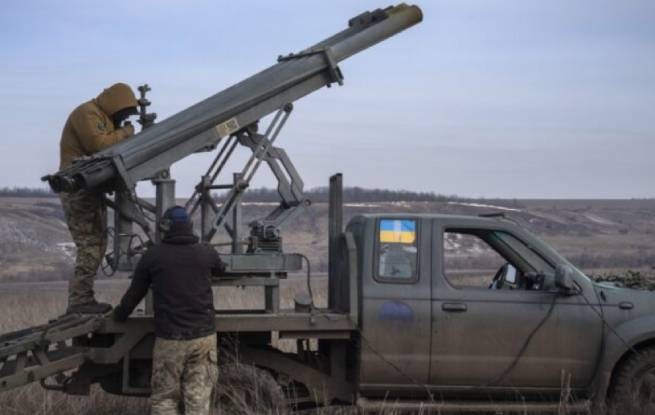“Imagine, I saw him! He was just rubbing against me. It seemed like he was drunk, but not drunk. He kept trying to hug me, but I was already an older woman. Then he came out on Omonia, I grabbed my wallet, but there was no wallet – he was in his pocket…” It is these monologues that are heard dozens of times a day in the center of Athens.
To the question “I was robbed, what should I do in this case?” They will answer you: “Contact the police.” Which in the conditions of the capital of Greece simply means “wasting time,” since the realities of Athens show that no one will return your money to you. However, if your documents or bank cards are stolen, you cannot do without it. But in this publication we will tell you how to try to prevent damage from a pickpocket.
How to protect yourself
To avoid becoming a victim of pickpockets, you should follow a number of rules. Firstly, try not to read messages from your smartphones or listen to music on the road – it is mainly passengers distracted by their mobile phones who become victims of theft. Secondly, do not store pin codes for bank cards, keys and documents in your wallet. Third, protect your phones with PIN codes or fingerprints. Don't worry that the world behind the scenes will get your fingerprints and sell them to aliens. However, the likelihood that thieves will open your phone and get information from it, as well as access to a bank or credit cards, is many times lower.
For a woman:
-
keep small amounts of money in several places;
-
keep money, documents and keys in your wallet in a compartment with an additional clasp;
-
in areas with heavy traffic, it is especially important to hold the bag securely so that it does not hang loosely and is in front;
-
try not to present the contents of your wallet when paying for travel;
-
Do not take up space in transport with your bag while paying for the fare.
For a man:
-
Do not carry your wallet in your back pocket or in the side pockets of your jacket or coat;
-
have an extra pocket for money in an unusual place;
-
do not wear a wallet so thick that it can be seen through your clothes;
-
do not carry your wallet in the left inner pocket of your jacket;
-
Don’t forget to fasten your jacket and coat while in transport, especially if your hands are full of luggage.
Wallet
It is best not to take it at all, but to stuff the money into pockets or various numerous compartments of a handbag. If you still don’t dare part with your wallet, don’t put all your money in it. Place at least some of the bills in another place. Having pulled out his wallet, the “tweezer” is unlikely to risk stopping to check “is that all?”
We’re not saying that you shouldn’t keep your apartment keys, travel tickets, or driver’s license in your wallet—you’ll lose everything at once. When paying at the store cash register, do not show your tight wallet to everyone. Often it is from there that pickpockets begin to “lead” their victims. For a good wallet, a thief is able to patiently move from store to store, onto a tram or minibus, or even walk you home, gallantly opening the door to the entrance.
If your occupation or income often requires you to keep large sums of money on you, it makes sense to sew a special pocket – for example, under the arm where action heroes wear a holster. In any case, it is safer to keep money and documents in internal zippered pockets.
Bag
No qualifications are required to reach into the purse of a woman trying on shoes or clothes in a store. It doesn’t take much effort to pick up a wallet lying on top; it requires almost no special training to “work” with a bag dangling from behind you while you are making your way through a crowd in a store or standing in line for a ticket at a train station. Hence the simple rules: the bag should always be visible in front, the purse or wallet should be kept deeper in it.
Packages
Carrying money, a wallet, or a cosmetic bag in plastic bags and bags means sparkling them until a pickpocket strikes with a razor and your goods fall into his hands.
Back pocket
The back pocket of the “specialists” of the profile is frankly called “alien.” Carrying money in them is dangerous.
Main types of pickpockets
Pickpockets can be divided into several categories:
- “pinch” – a thief who “works” with only his hands, without using various kinds of objects. As a rule, the “plucker” has good self-control, clear fingers and is the highest caste of pickpockets. Virtuoso finger control is the key to success as a pickpocket. He usually uses two fingers to remove the contents of his pocket. If they reach into a woman’s bag, they generally insert their hand completely, up to the hand or elbow, it all depends on the depth of the bag, the crowd of people and the location of the theft. “Shchipachi” work both alone and in a group. People to whom pickpockets pass stolen money unnoticed in the crowd are called weeders: they are given the weeds. Pickpockets try not to drink alcohol or use drugs while committing thefts. Each “plucker” is a subtle psychologist. As a rule, pickpockets do not call themselves “tweezers”, but say “I am a pickpocket.”
- “shaker” or “hugged” – a thief whose methods of work include close contact with the victim through acting. The criminal may accidentally hug the victim in transport, citing the fact that he was pushed. Or point a person to clothes that are supposedly soiled, and, as if helping him to shake himself off, run his hand through his pockets. One of the common methods is the identification game, when the thief allegedly mistakes the victim for an old acquaintance and, slapping his pockets, removes his wallet. The pair work of the “shakers” makes it difficult to catch them. “Shakers” most often “work” in transport. One of the oldest methods is “incline”: the thief stands behind the victim, the thief’s accomplice stands in front of the victim. When boarding a bus, tram or metro, the thief pushes the person or “kicks” him from behind, removes his wallet and immediately leaves. The job of an accomplice is to be able to “stall” (jargon), that is, position yourself so that the victim stands comfortably in front of the thief.
- “clerk” or “cutter” – a thief whose main weapon is a piece of a razor blade (“sink”) or a sharpened coin (“squeak”). The “clerk” cuts bags or clothes and removes the wallet. There are even special thieves’ methods for cutting bags and pockets, which are called “envelope”, “corner”, “top”. The bags are cut from the bottom up, as they are easier to cut under pressure. Using a blade or coin is a last resort because it is easier to check the inside of the bag with your hand to see if there is money in it and sneak your hand out, and a large slit on the bag can immediately catch the victim's eye.
- “shirmachi” – thieves who use various objects – screens – to carry out thefts. Raincoats, newspapers, and any objects that block the view are used here. Example: a thief approaches the victim, showing a map, referring to the fact that the visitor asks to indicate the place where he needs to go. The thief holds the card with one hand, and picks out the pockets with the other. Usually “shirmachi” work in pairs, one distracts, the second “works”.
- “Deaf” – thieves who “work” under the deaf and dumb. Such a specialist acts out a complete misunderstanding in front of you, he wants to know something, he hums, taps you (feels where your wallet is), he is in despair that you will not understand his question, he takes out a notepad, writes something, and so on and so forth. This is how he extracts money from people leaving a restaurant, in a hotel lobby, or at a train station. The “deaf and mute” do not need crowds; they need individual communication.
- “The band on the bus” A very popular form of theft is on public transport. The group (and pickpockets most often do not work alone) is located at the exit. It is more convenient to arrange a traffic jam in case of a misunderstanding, passengers change here, and most importantly, there are two levels of steps. And if you hold the bag or put it on the floor, then one of the group is blocking your view, and the other, standing lower, right at the door, is quietly operating in the bag.
- “Artist”. Some groups of pickpockets are ready to perform even a small performance. For example, they meet a train, quietly escort their chosen guest from the south or east to a taxi stand, and here they create confusion, a crush, during which they not only manage to rob the unlucky passenger, but also put him in the first taxi they come across, claiming that his destination is “just up the road.” And when he is about to pay for this taxi, he understands that there is nothing…
Noticed! What to do?
What to do if you feel someone else's hand in your bag? If there are no police nearby (which is most likely) and it is very difficult to detain the thief, and perhaps his accomplices are with him, just move away, make it clear that you felt something: the thief will disappear. If you are not alone, then the chances of apprehending a pickpocket increase, but you must be prepared for noisy resistance.
And finally, if the theft does occur, try to remember whether some bored person followed you from department to department of the store, or whether someone quickly walked away from the counter, although he did not buy anything. This information can help the police catch the thief in hot pursuit. But immediately come to terms with the fact that solving such a crime is very difficult, and if you were dealing with a real professional, it is almost impossible (unless, fortunately for you, a criminal investigation officer was hunting for him at that moment).
According to law enforcement sources, more than 50 thousand pickpockets occur in Greece every year. At the same time, more than 80% do not even register, since the victims consider this a waste of time – “the police will not search anyway,” they say, which is actually confirmed by practice. However, only a few thousand are revealed.







More Stories
Detailed instructions from the fire service in case of a possible fire (video)
The most dangerous areas of Athens
African dust: recommendations of the Greek Union of Pulmonologists